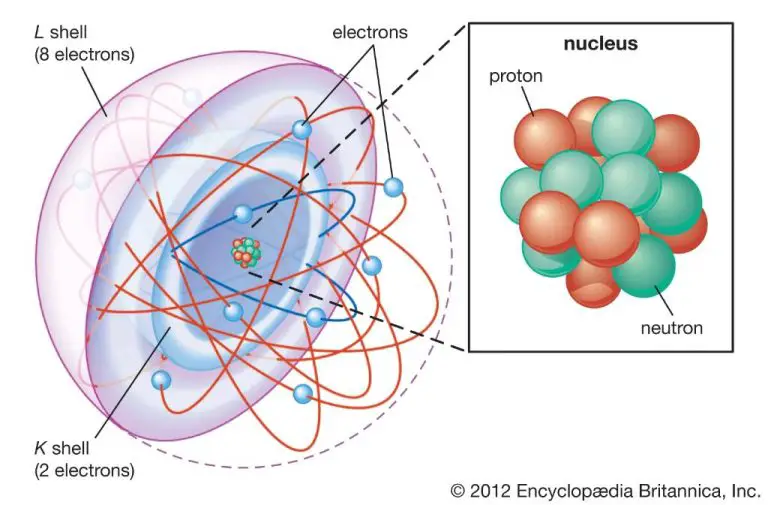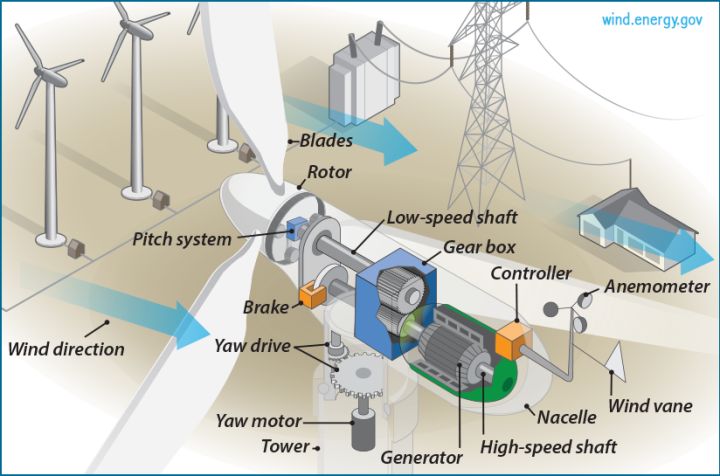Who Provides Power In Gainesville Fl?
Introduction
Gainesville, Florida receives its electricity from Gainesville Regional Utilities (GRU), the city’s municipal utility company. GRU provides electric, water, wastewater, natural gas, and telecommunications services to over 92,000 customers in the Gainesville metro area.
As a municipally-owned utility, GRU is governed by the Gainesville City Commission and does not make profits for shareholders like an investor-owned utility would. GRU owns and operates its own power generation facilities as well as maintains the distribution network that delivers electricity to homes and businesses across the city.
GRU faces some competition from Duke Energy, which serves some customers just outside the main GRU service area. But for most residents and businesses located within Gainesville city limits, GRU is the sole provider of electric service. This gives Gainesville area customers a publicly-owned and locally-controlled alternative for their energy needs.
History of Electricity in Gainesville
Gainesville did not have access to electricity until the late 1800s. Before this time, residents relied on candlelight, kerosene lamps and fireplaces for lighting and heating their homes. It wasn’t until 1885 that the first electric streetlights were installed in downtown Gainesville.
These streetlights were powered by a small electric plant owned by the Gainesville Gas Company, which had been providing gas for lighting since 1882. The gas company began offering electric power to local businesses and homes in Gainesville shortly after installing the streetlights downtown.
Over the next few decades, as demand for electricity grew, several small private electric companies emerged to serve Gainesville. Florida Power Company, which later became part of Progress Energy, was one of the major early providers of electricity in the area during the early 1900th century.
Gainesville Regional Utilities

Gainesville Regional Utilities (GRU) is the municipally-owned utility that provides electricity, water, wastewater, natural gas and telecommunications services to the city of Gainesville and surrounding areas in Florida. GRU was founded in 1896 to provide electricity to the city of Gainesville. Today, it serves over 92,000 electric customers, 67,000 water customers and over 32,000 wastewater customers across Gainesville and surrounding communities.
As a municipal utility, GRU is governed by the Gainesville City Commission. GRU provides retail electric, water, wastewater and natural gas services to residential, commercial and industrial customers within the Gainesville city limits. It also provides wholesale water and wastewater services to several neighboring communities. In addition to traditional utility services, GRU also provides telecommunications services including fiber optics, internet and more to local businesses and organizations.
GRU’s Power Generation
GRU generates the majority of Gainesville’s electricity from its own power plants. The Deerhaven Generating Station and J.R. Kelly Generating Station are GRU’s two main electricity generators located just outside Gainesville.
The Deerhaven plant consists of two coal-fired units that came online in the late 1970s. Together they have a generation capacity of around 400 megawatts. The J.R. Kelly plant is a natural gas combined cycle unit with four generators and a generation capacity of around 400 megawatts as well. It first began operating in the mid-1990s.
In addition to coal and natural gas, GRU generates smaller amounts of power from solar panels at its solar farm and from the biomass and landfill gas facility at the Gainesville Renewable Energy Center. The utility continues to explore and invest in renewable energy sources to diversity its generation mix going forward.
Rates and Reliability
Gainesville Regional Utilities (GRU) provides electricity to residents of Gainesville at competitive rates. According to GRU data, the average residential customer in Gainesville pays around 10.5 cents per kilowatt-hour (kWh). This is below both the Florida state average (12.13 cents/kWh) and the national average (13.19 cents/kWh) for electricity.
Over the past decade, GRU’s electric rates have remained relatively stable, with only minor rate increases implemented to account for inflation and system upgrades. For example, in 2021 the average residential rate rose by only 1.4% compared to 2020. GRU has not had a double digit rate increase in over 15 years.
In addition to reasonable rates, GRU scores highly for reliability. The average GRU customer experiences only 1.3 outages per year, compared to a Florida average of over 2 outages annually. And when outages do occur, power is usually restored quickly. GRU’s average outage duration is only 112 minutes, compared to a state average of 206 minutes.
GRU’s strong reliability numbers are due to significant investments in infrastructure upgrades, vegetation management, and smart grid technology implementation over the past two decades. As of 2022, GRU’s electric system was valued at over $1 billion in assets.
GRU Initiatives
Gainesville Regional Utilities (GRU) has made significant investments in renewable energy and efficiency programs in recent years. Some of the key initiatives include:
Solar power: GRU has installed over 6 megawatts of solar photovoltaic systems throughout Gainesville, including at the Gainesville Renewable Energy Center, Gainesville Regional Airport, and other city facilities. This provides enough solar energy to power over 500 homes.
Biomass: The Gainesville Renewable Energy Center generates power by burning sustainable wood waste biomass. This 103 megawatt biomass plant provides enough renewable energy for over 30,000 homes.
Energy efficiency: GRU offers rebates and incentives to customers for installing more energy efficient appliances, cooling systems, lighting, windows, insulation and other upgrades through its Energy Efficiency Rebate Program. This helps lower energy usage and bills.
Electric vehicles: GRU has installed electric vehicle charging stations around Gainesville to encourage the adoption of EVs. They also offer special EV charging rates and rebates on Level 2 chargers for residential customers.
With these initiatives, GRU is working to increase its renewable energy mix, reduce reliance on fossil fuels, lower emissions and provide more options for customers to save energy and money.
Regulation
While privately owned electric utilities dominate some parts of Florida, Gainesville’s electric utility, GRU, is publicly owned. This means GRU is governed by the Gainesville City Commission and does not have shareholders seeking profits like private utilities do.
The Gainesville City Commission sets rates and makes major decisions about GRU’s electric service. The Commission has 5 members who are elected citywide to serve 4-year terms. Commission meetings where GRU issues are discussed are open to the public.
Like all electric utilities in Florida, GRU is regulated by the Florida Public Service Commission (PSC). The PSC oversees investor-owned utilities, while municipally owned utilities like GRU have autonomy but still require PSC approval for certain projects and bonded debt.
GRU also follows regulations set by the North American Electric Reliability Corporation (NERC) related to reliability and security of the electric grid. Federal regulations from the Environmental Protection Agency impact GRU’s generation resources as well.
This governing structure aims to balance GRU’s public ownership with oversight from elected officials and state regulators. The goal is providing reliable electric service at reasonable rates for Gainesville residents and businesses.
Comparison to Other Utilities
When comparing GRU to other major utilities in Florida, it ranks favorably in terms of rates and reliability. GRU’s residential rates are below the state average and lower than many other municipal utilities in Florida such as those in Orlando, Lakeland, and Tallahassee. This is impressive considering that GRU does not have the economies of scale of some of the larger investor-owned utilities.
In addition, GRU scores very well on reliability metrics. GRU’s average outage duration is 65 minutes compared to the state average of 101 minutes. Its average number of outages per year per customer is also better than other major municipal utilities. GRU’s strong reliability numbers are due to its robust distribution system and preventative maintenance programs. The utility has invested heavily in underground power lines and grid modernization efforts in recent years.
Overall, GRU provides very competitive rates and excellent reliability compared to other major utilities in Florida. GRU’s customer satisfaction scores also tend to rank higher than the larger investor-owned utilities. As a locally controlled municipal utility, GRU is able to be more responsive to the needs of its customers in Gainesville.
Future Outlook
Gainesville Regional Utilities has several planned investments and changes in the coming years to continue providing reliable electricity to the region. Some of the key initiatives include:
- Expanding solar power generation: GRU is planning to add more solar farms to increase the share of renewable energy in its generation mix. This includes developing the 400-acre Heartwood solar site.
- New natural gas plant: GRU is building a new 3-unit combined cycle natural gas power plant scheduled for completion in 2023. This will replace older coal units while meeting baseload needs.
- Grid modernization: GRU is upgrading infrastructure including smart meters to enable more automation, data usage, and customer tools for managing energy.
- Rate changes: GRU is restructuring electric rates to better reflect costs and encourage energy efficiency and off-peak usage.
- Reliability investments: The utility plans to continue replacing aging equipment and vegetation management to maintain extremely high reliability metrics.
With these investments and changes, GRU aims to meet Gainesville’s growing energy needs while transitioning to clean energy and empowering customers in the coming decades.
Conclusion
Gainesville’s electricity is provided by a municipal utility called Gainesville Regional Utilities or GRU. GRU generates power from a diverse mix of sources including natural gas, biomass, solar, and purchased power. They have worked to keep rates affordable while investing in clean energy and reliability. Key takeaways include:
– GRU is the sole electric provider for Gainesville residents and businesses. They are owned by the city but operate independently.
– GRU operates multiple power generation facilities including the Deerhaven power station and the biomass plant. This allows them to maintain control over costs and reliability.
– Rates are regulated by the Gainesville city commission to balance affordability and operational needs. GRU’s rates are competitive with other Florida utilities.
– GRU has invested heavily in solar energy and has plans to increase solar capacity. They are also modernizing the grid to improve reliability.
– GRU faces challenges from emerging technologies like rooftop solar. But they continue adapting to meet Gainesville’s energy needs today and in the future.






